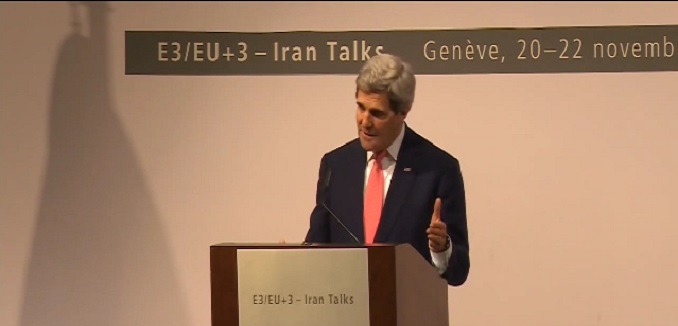USA Today late on Wednesday sketched out the emerging details of an anticipated deal between Iran and the P5+1 global powers, with the outlet bluntly assessing that the agreement will fall far short of securing an “end [to] Iran’s ability to develop a nuclear weapon.”
“The Iranians will have some kind of (uranium) enrichment capacity” at the end of negotiations, said Mark Dubowitz, executive director of the Foundation for Defense of Democracies who has advised the administration on Iran sanctions.
It also noted that top U.S. lawmakers from both parties – and from both chambers – have been unequivocal that leaving Tehran with such capabilities would be unacceptable. The dynamic may become problematic for the Obama administration, which will likely need congressional legislation to unwind sanctions against the Islamic republic.
There have been leaks suggesting that the White House could unilaterally suspend financial restrictions, but even Iranian lobbies have conceded that those scenarios are unlikely to prove diplomatically robust.
Meanwhile, Washington Institute Managing Director Michael Singh on Wednesday published a piece worrying that Western negotiators have implicitly shifted to a position where “a ‘good deal’ these days is often framed more in terms of Rouhani’s capacity to deliver than our own requirements.”
Even if Rouhani hangs on, one should not mistake his desire to ease Iran’s isolation for an eagerness to turn westward. Iran will more likely pursue partners it sees as rivals to the United States or as non-aligned. In recent weeks, Iranian officials have endorsed Russia’s position on Ukraine, visited Beijing to pursue deeper military ties and signed a transit agreement with India and Afghanistan as U.S. troops prepare to withdraw from the latter. Combined with increased tensions in traditional U.S. alliances as a result of a nuclear deal with Iran, the effect could be a sharp blow to America’s position.
Thus, a weak agreement could prove a strategic setback in the guise of a tactical success. Any accord must be crafted to reassure skeptics and survive a change of leadership or of course in Tehran. Rouhani’s presence across the table may make an agreement possible, but it should not dictate the substance of the deal.
[Photo: RT / YouTube]




